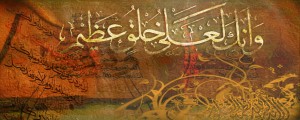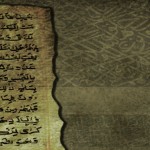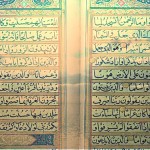Ahmed Shamseddin Marmarawi : An awliya from Manisa
He was born in Akhisar in the year of 1435. After he received his formal education there, he went to the city of Uşak to meet Sheik Alâeddeen Ushhakî, to study tasawwuf in his dergah. From there, his sheik Ushhaki sent him to the city of Manisa so that he can share what he learned with the public, not just regular İslamic studies, as well as, tasawwuf wisdom.
During the reign of Sultan Bayazeed the second, there were many “false sects” and their leaders were covertly operating in the Anatolian peninsula to spread misinformation about Islam, mostly working directly for that period’s Persian government or commissioned by other forces who wanted to spread chaos into the public minds of Ottoman crowds.
The reason tasawwuf was highly regarded among the Ottoman public, the best way to create a state of disorder during those times was to form different “fake” tasawwuf paths by using disinformation agents posing as “sheiks”
Sultan Bayazeed the second was a sufi himself and regarded this sociological problem as a serious threat to the Ottoman state. Therefore he assigned an important duty to Ahmed Shamseddin Marmarawi and invited him to Istanbul. His task was simple yet very crucial. He was to test many of these “sheiks” and brig out into light whether their practices and teachings was in accordance to true spirit of Islam.
After exposing and informing the sultan about these spreaders of heresy in the name of Islamic tasawwuf, her returned back to his city of Manisa and continued to teach his students.
He always preached his students about the dangers of “arrogance” and he reminded his students the famous hadith from Rasulullah(saw) where it is said that “those who the slightest bit of arrogance in his heart can not enter paradise”
In his own words, as noted by his students:
“The tree of desires and passion resides in your heart and that dangerous tree has seven branches that reach out to your eyes, tongue, heart, your inner self, to other people and living things and to the mundane affairs and to life after death. Every seven of these branches have their own fruit. The eye’s fruit is to look at haram, something that should be avoided. The fruit of the tongue is to scrutinize and talk about faults of other people, don’t do that as well. Heart’s fruit is to have wrath and animosity for people, don’t touch that fruit, ever. The inner self tend to go after suspicious things, and won’t take harams and mekruhs seriously. Don’t follow your inner self. The branch of other people and living things has its own fruit, which is to see one’s self superior to other people, don’t go there as well. The branch of mundane affairs will fill you with dangerous ambitions about financial gains.
The branch of life after death is about sorrow and remorse, take its fruit. If you follow Allah’s(j.j) orders closely, you’ll follow this branch, not the other six. You will get rid of your bad ethics and stick to good manners in this way.”
Marmarawi passed away in the year of 1504 in Manisa, where he left 8 tomes of “ilm” and hundreds of students.
em









You must be logged in to post a comment Login